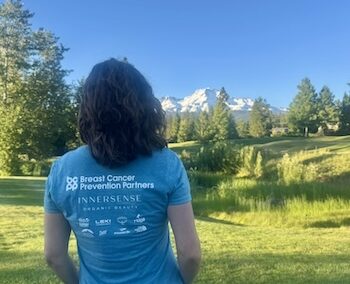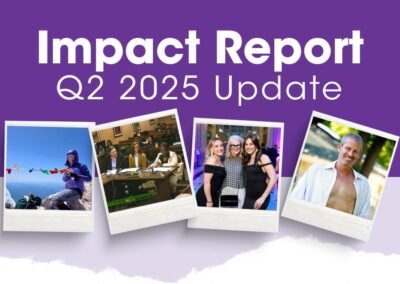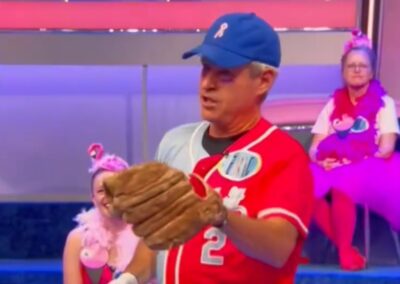CONTACT:
Erika Wilhelm, Breast Cancer Prevention Partners (415) 321-2920
Anne Hawke, National Resources Defense Council (646) 823-4518
Steven Taylor, Coming Clean (207) 406-4011
Derrick Robinson, Public Citizen (202) 909-6355
WASHINGTON — A federal appeals court has left in place the Consumer Product Safety Commission (CPSC) ban on harmful phthalate chemicals from plastic used in children’s toys and childcare articles. The court rejected most of the arguments made by the chemical industry opposing the ban, but also found flaws in the agency’s rulemaking process. It gave the agency an opportunity to fix those errors before the court takes up any remaining issues with the ban.
The Natural Resources Defense Council (NRDC), the Environmental Justice Health Alliance for Chemical Policy Reform (EJHA), and Breast Cancer Prevention Partners (BCPP) sued the agency in 2016 to compel it to finalize its proposed ban of children’s toys and childcare articles, like pacifiers, containing five types of dangerous phthalates. The CPSC issued that final ban in 2017. Industry groups, led by the National Association of Manufacturers and Exxon, subsequently challenged the ban.
“It’s important to remember that for many children, phthalates in toys and pacifiers are just the ‘tip of the iceberg’ when it comes to exposure to these harmful chemicals,” said Michele Roberts, National Co-coordinator of the Environmental Justice Health Alliance. “This is especially true for Black, Brown, Native Indigenous peoples and poor children across the country, who face greater exposure to phthalates. The CPSC’s bans were years overdue in the first place, and we urge the agency to act quickly to confirm these protections for the most vulnerable among us: our children.”
“We’re thankful that the ban on phthalates in toys and childcare articles stays in effect while the CPSC addresses the court’s concerns, particularly given the link between these hormonally active chemicals and breast cancer,” said Nancy Buermeyer, Breast Cancer Prevention Partners Senior Policy Strategist. “Phthalates are widely used in many consumer products and the science continues to build on the harms they cause. It’s been more than a decade since Congress banned six phthalates in toys and instructed the agency to quickly act to ban others. Now is not the time to undermine these much-needed protections!”
“There can be no doubt that it’s appropriate to ban phthalates,” said Jared Knicley, Senior Attorney, Natural Resources Defense Council. “Recent studies link phthalate exposure not only to hormone disruption and reproductive harm, but also to lasting damage in children’s brain development. Leaving the ban in place ensures that there’s no gap in this important rule’s protections. As with any action affecting the health of children, the agency should move quickly to address the procedural issues raised by the court and reaffirm its decision.”
Public Citizen Litigation Group served as co-counsel with NRDC attorneys in representing NRDC, EJHA, and BCPP as intervenors defending the rule against the industry’s challenge.
“The court rightly found that, in banning these dangerous chemicals from children’s toys and child care products, the agency engaged in a thorough analysis of the health risks of phthalates and applied the proper health standards. The court’s decision to leave the rule in place while the agency works to correct what the court identified as procedural errors ensures that protections for children from these dangerous chemicals while the agency addresses the court’s concerns,” said Allison Zieve, Director of Public Citizen Litigation Group.
BACKGROUND
Phthalates are commonly used as a plastic softener in children’s toys and child care articles, such as teething rings. They’re associated with severe and permanent reproductive and developmental damage, especially in young children. U.S. government data show that for many phthalates, exposure is significantly higher in children age 6-11 and in people of color.
In late 2014, the CPSC proposed to ban five types of phthalates in children’s toys and childcare articles due to these health risks. But the agency failed to meet a 2015 deadline.
NRDC, EJHA, and BCPP sued the agency to force it to act. The parties entered into a settlement requiring the CPSC to decide whether to finalize its proposal to permanently ban five phthalates from children’s products by October 2017.
The National Association of Manufacturers tried to block the proposed consent decree, but a federal district court rejected that attempt.
CPSC complied with the settlement and issued its final phthalates ban on October 18, 2017. The ban took effect on April 25, 2018.
A copy of the appeals court’s decision is here.
Read more background on phthalates.
###
Breast Cancer Prevention Partners (BCPP) is the leading national science-based policy and advocacy organization working to prevent breast cancer by eliminating our exposure to toxic chemicals and radiation.
Natural Resources Defense Council (NRDC) is an international nonprofit environmental organization with more than 3 million members and online activists. Since 1970, our lawyers, scientists, and other environmental specialists have worked to protect the world’s natural resources, public health, and the environment. NRDC has offices in New York City, Washington, D.C., Los Angeles, San Francisco, Chicago, Bozeman, MT, and Beijing. Follow us on Twitter @NRDC.
The Environmental Justice Health Alliance (EJHA) is a national network of communities of color, Indigenous communities, and low-income communities that are disproportionately impacted by toxic chemical hazards. EJHA works to address the multiple harms caused by the hazardous chemical and energy industries—including waste, pollution, and health hazards—and support community-based solutions that improve health and well-being.
Press release originally authored by our partners at Natural Resources Defense Council.



